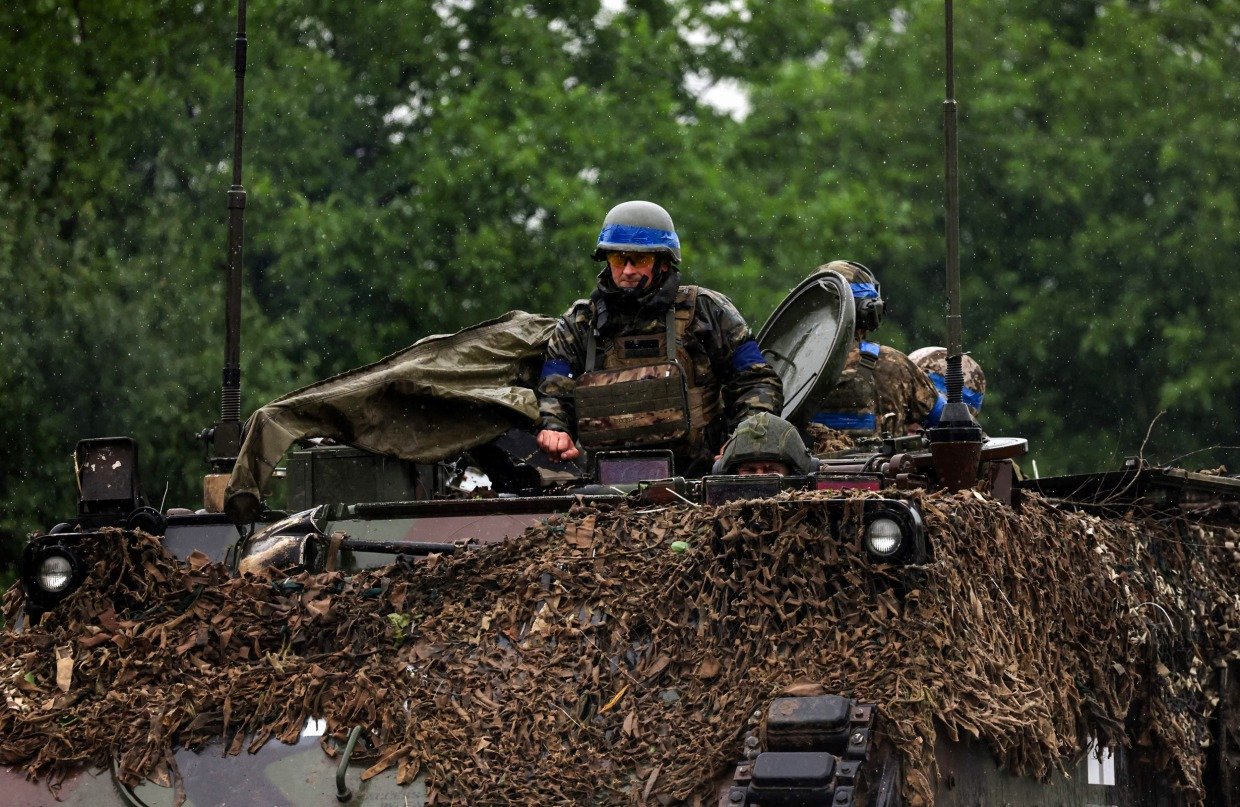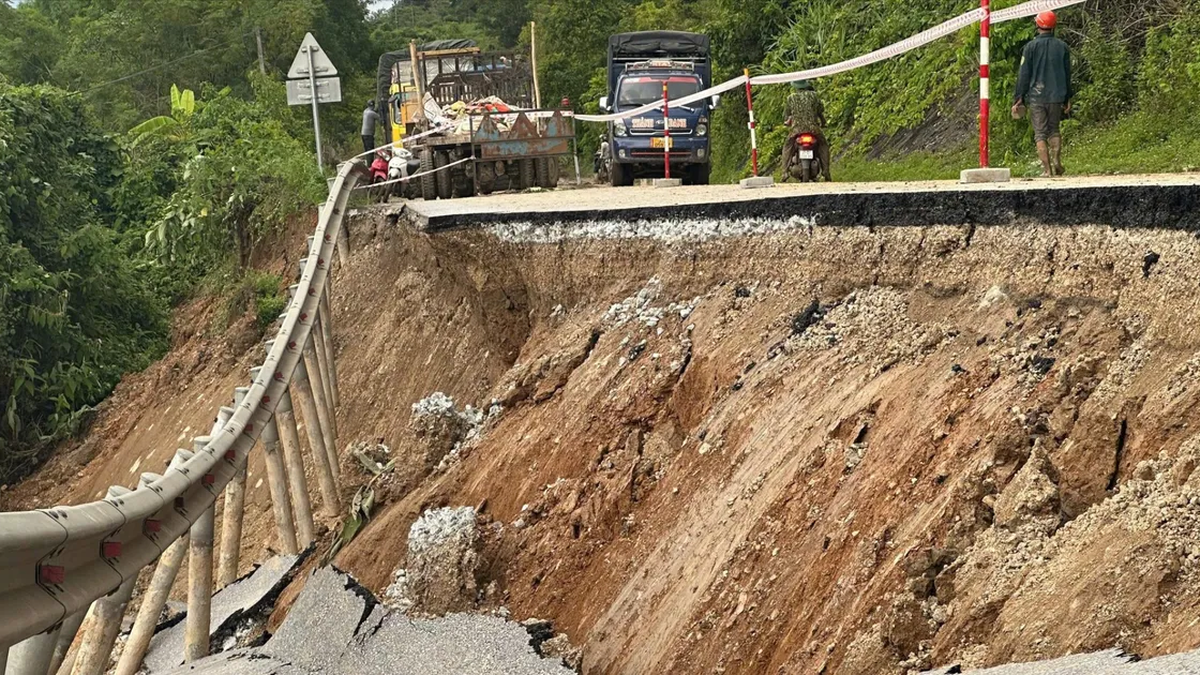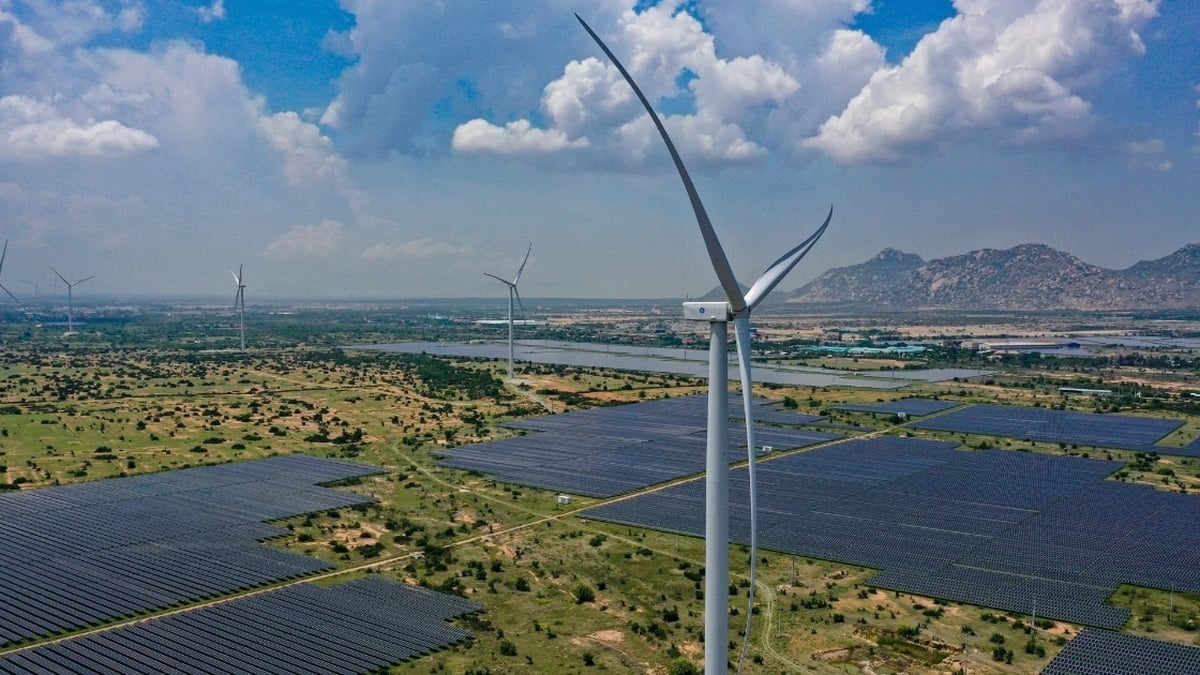Ukraine claims to have captured the 8th village
Ukraine said on June 19 it had driven Russian forces out of the eighth village in a two-week offensive in a heavily fortified section of the southern frontline on the most direct route to the Sea of Azov.

Ukrainian soldiers in Zaporizhzhia province
A pro-Russian official in Zaporizhzhia province said a day earlier that Ukraine had taken control of the village of Piatykhatky, according to Reuters. The official later claimed that Moscow’s forces had pushed back Ukrainian troops, and on the morning of June 19, he announced that Ukraine was attacking again.
Ukrainian Deputy Defense Minister Hanna Maliar said Ukrainian forces not only recaptured Piatykhatky but also advanced 7 km into Russian defenses in the past two weeks, gaining 113 km2 of land, according to Reuters.
"In two weeks of offensive operations in the direction of Berdiansk and Melitopol, eight residential areas have been liberated," Maliar said on Telegram, referring to two cities on the Azov Sea.
The recapture of the villages shows Ukraine is making progress, highlighting the challenge of breaking through lines that Moscow has spent months shoring up. Piatykhatky is important because it lies about 90km from the coast.
Also on June 19, the Russian Defense Ministry said its forces had thwarted a Ukrainian attempt to capture the village of Novodonetske in the eastern Donetsk region, one of the areas where Kyiv's counteroffensive efforts were focused.
TASS news agency on June 19 quoted a senior Russian diplomat as saying that Russia's deployment of tactical nuclear weapons in Belarus has no time limit.

Belarusian President Alexander Lukashenko and Russian President Vladimir Putin in Sochi (Russia) on June 9
In March, Russia announced that it would send tactical nuclear weapons to Belarus, a close ally that has supported Moscow’s military operations in Ukraine. Belarusian President Alexander Lukashenko said the weapons began arriving last month, the first time Moscow has sent such warheads outside Russia since the collapse of the Soviet Union.
"As for the possible time frame for the presence of Russian tactical nuclear weapons on the territory of Belarus, the agreements between Russia and Belarus do not contain any restrictions on this issue," TASS quoted Alexei Polishchuk, head of the Department of Former Soviet States at the Russian Foreign Ministry, as saying in an interview.
In theory, these weapons could be withdrawn from Belarus if the US and NATO "stop undermining the security and sovereignty of Russia and Belarus," Mr. Polishchuk said.
Russia blocked Ukraine's "terrorist" plot?
Russia's Federal Security Service (FSB) said on June 19 that it had thwarted a series of "sabotage and terrorist plots" by Kyiv targeting Russian-backed officials in Moscow-controlled territory in Ukraine. Russia also detained a woman in the investigation, according to Reuters.
In a statement, the FSB said the targets in the potential attacks were Russian law enforcement officials and Russian-backed government officials in Zaporizhzhia province, one of four Ukrainian regions that Moscow unilaterally annexed last year.
Kyiv did not immediately comment on the FSB's allegations.
The FSB said it had opened a criminal case against a woman it described as an "accomplice", on charges related to terrorism and illegal possession of explosives.
Russia explains why it won't allow UN to help flood-hit areas
The Kremlin said on June 19 that Russia's decision to refuse UN assistance in areas of Ukraine under its control that were flooded after the Kakhovka dam collapsed was due to security concerns and "other aspects," according to Reuters.
The United Nations said on June 18 that Moscow had rejected offers of help as the death toll rose and dirty water forced beaches in southern Ukraine to close.
“The UN will continue to engage to seek the necessary access. We call on the Russian authorities to act in accordance with their obligations under international humanitarian law,” Denise Brown, the UN humanitarian coordinator for Ukraine, said in a statement, according to The Guardian .
The dam failure on June 6 caused flooding in many Russian-controlled areas of Kherson province in southern Ukraine, destroying homes and farmland and cutting off supplies of essential goods to people.
Source link



































































































Comment (0)